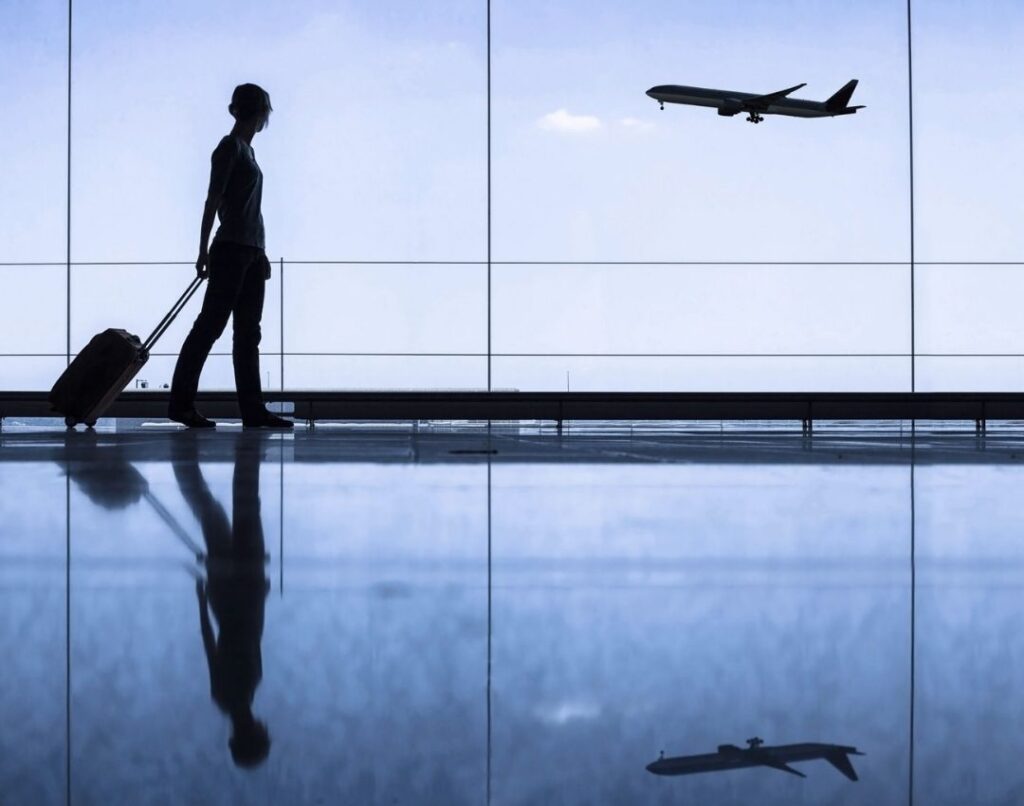An appetite for travel and the need to meet face-to-face contributed to global corporate travel enjoying a strong 2023.
And the latest Global Business Travel Association’s (GBTA) Business Travel Outlook Poll reflects how the sector could enjoy an ‘even stronger year’ in 2024, while most buyers expect their corporate budgets to rise next year, according to a report by Morgan Stanley.
Nevertheless, the sector did experience challenges and many of those are still on the horizon. GBTA’s report cites that, globally, the main barriers to business travel in 2023 were keeping up with price increases, inflation and recession concerns and geopolitical events.
As well as these key issues, what are the other drivers of change that travel managers need to be aware of to ensure their travel programs deliver maximum results for their organizations and drive business efficiency?
Here we share the top three predictions from our Business Travel Trends: Predictions 2024 report, made by Reed & Mackay’s global leadership team on what they think will impact travel management over the next year.
1) Artificial intelligence will increasingly enhance and streamline travel processes
The hype around artificial intelligence in travel in recent months has been loud. As much as there is excitement growing around its potential, concerns – and some apathy – remain, particularly from travel buyers, as the GBTA’s Business Travel Outlook poll revealed. Around a third (32%) of respondents are excited about AI, while another third (33%) feel it’s too early to predict its full impact. And some travel buyers, in the year ahead, view implementing AI applications/tools in their corporate travel program as important in 2024 (34%), but others say it is a low or a non-priority (37%).
While ensuring the right guard rails are in place around AI-powered technology, it is an innovation that can potentially bring some positive benefits to corporate travel buyers, Reed & Mackay Group CEO Fred Stratford believes.
“AI will speed up some of the processes we currently have in place, get us to the answers more quickly and provide opportunities that are faster paced. From our industry point of view, we should embrace it,” Stratford says.
Reed & Mackay CEO US John Keichline agrees, predicting the use of AI will create more efficiency for the traveller, booker and consultant, leading to more time to focus on dedicated service.
“AI can take on the day-to-day elements of booking travel. And it can help categorize those clients who use it, identifying – to TMCs – which clients require more dedicated service for complex trips,” Keichline says.
“The key word that should be associated with AI and its positive impact on travel is efficiency. Business travel can be stressful so, if it can help workloads become more streamlined, that will help the travellers, the bookers and the consultants. Furthermore, that contributes to improved employee wellbeing.”
And it’s chatbot technology that will enhance communication and provide timely information to travellers, reducing the burden on travel buyers and TMCs, believes Reed & Mackay CEO Asia Pacific Jane Warren. “Imagine having an executive assistant in every traveller’s pocket, leveraging AI to provide a seamless travel experience from booking to reconciliation,” Warren says.
“We’re exploring the benefits it could bring as a forward-thinking business,” Stratford adds. “Our tech team have been working on this in conjunction with our parent company Navan, who has been using AI for several years already.”
2) New Distribution Capability (NDC) will be a game changer in the travel tech space

Almost half of travel buyer respondents of GBTA’s Business Outlook poll stated new industry technologies, such as NDC, will pose the most significant technological challenges in 2024.
When asked to rank their risk-related priorities for 2024, one in five surveyed (22%) ‘expect integrating NDC distribution channels will be most prioritised by their company’.
Most buyers (71%) strongly feel they still need more information and education on NDC (although this is a decrease from April 2023’s poll, which sat at 81%) – and half (50%) say they have not started to implement NDC. And 36% feel that third parties, such as travel management companies (TMCs), should now be ready to handle NDC bookings – up from a figure of 29% in April.
Whatever the concerns and benefits around it, NDC will remain a game changer in the travel tech space going into 2024.
“That’s because access to really rich content across different platforms is going to become increasingly important next year,” Keichline explains. “Particularly as business travellers are getting more savvy, looking up things on their own, saying ‘I found a cheaper ticket’. So being able to provide them with rich content that works best for them and their organizations will be crucial.”
Reed & Mackay COO and CEO Europe Julie Oliver points out that while NDC is, arguably, still on a journey, it’s here to stay and buyers and TMCs alike need to get on board with it. “However, as we head into 2024, it’s going to make TMCs rethink how we respond to our clients’ needs,” she adds. “When you get to the nuances of the fare buckets NDC produces, this is where a business travel consultant will be trained to understand and decipher what those mean for the clients – resulting in enhanced dedicated service.
“Plus, with good partner relationships with airlines, we have the opportunity to feedback to them where there are challenges. For example, business class and corporate clients aren’t going for the $100 fares so they can’t sit in an airline queue with a query about their ticket for three hours and neither can we as the TMC looking to serve them. This needs to be looked into.”
3) There’ll be increased calls for tracking and reporting on traveller wellbeing

If global business travel is expected to recover to its pre-pandemic total of $1.4 trillion in 2024, and grow to nearly $1.8 trillion by the end of 2027 (two years earlier than previously forecasted), will this signal a rise in business trips? And how will that, in turn, have an effect on traveller wellbeing?
Oliver believes that recruiting and retaining the best people – and providing the best working environment for them – will be the number one priority for companies in 2024. Which understandably includes looking after their travellers’ wellbeing, an area TMCs will increasingly be asked to monitor.
“Organizations need look at how many nights people have been travelling, how many days they’re not with their family,” Oliver says. “Looking after your travellers’ wellbeing all points to employee productivity and better performance and, subsequently, business efficiency.”
Warren agrees, predicting that the focus of TMC programs is shifting from cost reduction and compliance to prioritizing employee wellbeing.
“Behavioural management is crucial to understanding how to retain talent and, in turn, drive the most savings for employees who travel extensively,” she says. “This could come in the form of a report or a dashboard, which will help identify travellers who might be burning out, allowing change to their travel patterns accordingly.”
Read the full report here
What do you think will affect corporate travel trends in 2024? Share your thoughts with us at [email protected]




